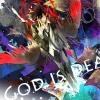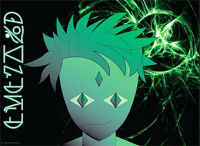Some people I've talked to plan their stories out to every little detail. They keep notebooks with drafts, story events, character info, etc and assemble things together like a puzzle. For others, a basic concept is enough and they can free work it. Reading a lot helps with this because you can better envision how storylines would normally progress and pick up inspiration and/or shake the status quo. Some like to write their stories without knowing the end, which can give a more natural feeling progression to your plot. Others like to write here and there, doing all the major stuff first and then connecting it together.
For me, writing anything is pretty much a draft. I'll think of a concept and run with it, see where it goes. I rarely get ideas fully formed, but working one long enough makes me see different directions I could take it, twists that could happen, and how irrelevant things can suddenly tie together big portions of plot.
I think most writers will probably go through several versions of their stories, at least for something enormous like a novel. Outlines and summaries help you organize and give you checkpoints, but actually writing it is where you pick up subtle things like whether the style you're using works. Maybe an event you wanted to feel epic comes out sounding hammy and overdone. Time to tweak words or go back to the drawing board.
As for style, one thing that I see new writers especially struggle with is pacing. Now, you could have a story that's essentially just a bunch of summarized points put together. But it's dull to read because the pacing is flat like a wikipedia entry. You're just being fed information and there's only so much people can take before their minds turn to mush (especially in the era of hyperstimulating media). Now sure, this format can still work if the information is new and interesting to your audience (for example, rapid fire comedy or 4chan posts that blow your mind) and easily understood. But in general, you want to give parts of your story the attention you think they deserve.
For example, if you had something like:
"My character is a cool guy. He was walking home. A robber came and shot his legs. My character no longer has legs."
In most stories, losing your legs would be a pretty significant event. But this piece just glossed over it in half a sentence that was the same flat structure and tone as the rest of the story. It doesn't stand out, so it doesn't feel very important. Actually, I could've missed that if I was skimming (which a lot of readers do).
Look back to stories, films, manga, etc that you've seen. Think about how they pulled your attention to events that needed it, kept you laughing or on the edge of your seat during transition periods. Now, it's not like you need to be anal about it. A lot of people can hit most of this instinctively by just trying to write something that they themselves would like. So probably the best way is to read your story and think, is this how I would like it if someone else wrote it? Would it make sense to do it like this?
So I guess it'd really depend on your preferences. For me, I like big, over-the-top stories and characters. But my writing style is kind of muted and can be long-winded. So maybe I'll introduce a character and spend a couple paragraphs just explaining everything about that character. But that's not what I like, it just doesn't work for me. So I'll think about stories where the character intro really stood out for me. I'll probably trash the char's biography in that scene, just give him/her a slick entrance. Maybe with rockets exploding or a princess falling off a cliff or something. Think, who the fuck is this guy? And feed it little by little, so I'll be hanging onto every little word. Then I'll go, not bad, and move on.
Edited by watsu, 10 October 2014 - 12:35 PM.

 Sign In
Sign In Create Account
Create Account






 Back to top
Back to top












